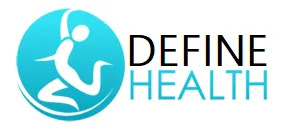Eating the Right Foods for Exercise
Eating the Right Foods for Exercise
Eating
the right foods for exercise can improve your workout performance and help you
build muscles. It’s especially important to eat before exercising so that your
muscles can recover from physical activity. Consuming energy-rich food before
you exercise can help you train longer and more intensely. It will also help
preserve muscle tissue. Listed below are a few tips for eating the right foods
for exercise. Listed below are three examples of the right foods to eat before
an exercise session.
Pre-workout meal replenishes glycogen
The
purpose of a pre-workout meal is to replenish glycogen in the muscles, which
are depleted during exercise. Glycogen is a crucial energy source for the
muscles, as it facilitates contraction of the muscle fibers. It also increases
the volume of the muscle cells. The resulting higher muscle cell volume may
facilitate changes in the muscle, including long-term muscle growth.
The
muscles of the body use glycogen as the primary source of fuel during aerobic
exercise. The initial glycogen stores of an athlete are crucial to the
athlete’s performance, and if they are depleted, their performance will suffer.
High-glycemic carbohydrate foods are a great way to replenish muscle glycogen.
High-glycemic carbs can replenish glycogen faster than other carbohydrates.
In
addition to replenishing glycogen, a pre-workout meal can aid in muscle repair
after intense exercise. Aim to consume a meal that contains about 25 grams of
protein and 0.5 to 0.6 grams of carbohydrates per kilogram of body weight. A
meal that contains both protein and complex carbohydrates will help the body
recover faster and promote muscle protein synthesis.
After
a hard workout, it’s vital to replenish muscle glycogen. This will improve
recovery time and promote a quicker return to training. A meal with a
protein-rich component will also help to boost the uptake of glucose into the
muscles. As a result, you’ll have more energy and less fatigue after a workout.
Ideally,
the pre-workout meal should be eaten at least 45 minutes before the workout.
After a workout, your muscles will be able to absorb the benefits of a
post-workout meal for about an hour or more. Skipping this meal is likely to
lead to further protein breakdown and additional soreness. In addition,
skipping a post-workout meal may lead to further loss of mass.
Carbohydrates
are important for training and are the main source of fuel for anaerobic
activity. Therefore, a pre-workout meal should contain at least enough
carbohydrates to fuel the strenuous activity. Protein should be moderately
high, but not too much. Since protein is not used as a fuel source during the
training, it is best to eat a moderate amount of protein before training.
However, some protein can help in reducing the likelihood of muscle catabolism,
but it is not necessary for muscle growth.
It
has been shown that branched-chain amino acids have been shown to improve
endurance exercise performance. However, large amounts of caffeine can lead to
cardiovascular issues. Also, high doses of caffeine may lead to sleeplessness,
anxiety, and nausea. In addition, high intake of caffeine can lead to diarrhea
and headaches.
Pre-workout
meals are important for the performance and recovery of the body. They should
contain protein and carbohydrates. A good pre-workout meal should be consumed
at least 30 minutes before you start your workout. This meal is also important
for your recovery after the workout.
Avoiding difficult to digest foods
When
you are planning to start a workout, it is essential to eat foods that are easy
to digest before exercise. Specifically, you should avoid foods high in fat and
fiber. These types of foods tend to sit in the stomach for a long time. This
causes the blood meant to supply your muscles with oxygen to be diverted to the
digestive tract instead. This can lead to stomachaches, cramps, and nausea. In
addition, these types of foods can cause bloating.
Dairy
products, including cheese, can be hard to digest. This is because they contain
lactose, which can cause gas, bloating, and diarrhea in some people. To avoid
this, stick to dairy products that are low in lactose, such as yoghurt and hard
cheese.
Avoiding foods that are high in fat
Avoiding
foods high in fat before exercise is crucial for a healthy diet. Fat provides
energy and helps the body absorb vitamins. Certain vitamins require fat to
function properly. Good sources of unsaturated fats include olive oil,
flaxseed, nuts, and avocados. Eating throughout the day is also important for
delivering sufficient energy before a workout. Moreover, consuming large
amounts of fat before a workout can cause digestive upset.
Generally
speaking, people should limit their total fat intake to a maximum of three to
four servings per week. They should also avoid consuming high-fat dairy
products like ice cream, cheese, or sour cream. It is better to opt for nonfat
or reduced-fat dairy products. Avoid using cream and sour cream on your
vegetables.





